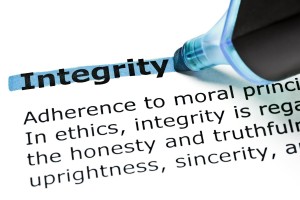Should You Highlight Failures in Your Resume?

But, when you consider the benign context that the failure resume emerged it doesn’t sound quite as bonkers a notion. It seems it has its roots in the mentoring protocol of one Tina Seelig, Stanford Technology Venture Program’s executive director.
She encourages, well “empowers” if we are to be accurate, all her students to create a failure resume, allowing them to embrace all their experiences. It is something that can be created alongside the typical success resume, (which we all know about), and the students are required to address their failures and understand what they have learned from them and see how they have applied that learning to help them be a more effective individual going forward. The purpose of this tool is to help students understand that failure is a crucial part of the learning process, but it wasn’t explicitly intended to see the light of day; that is, land on the employer’s desk alongside a success resume. But, this isn’t to say it can’t have some application in the outside world in the job seeking and personal development process.
It is clear that more and more employers are seeking to assess candidates not just on their achievements, but on how they have responded to challenging situations and failures, such as the challenging nature of the modern business environment. They feel it gives them a more authentic view of the candidate, enables them to see whether they’d like to ‘go to war with you’, or see how you respond in ‘a fire fight’.
Now, I am not saying that candidates should whip out their failure resumes when asked the questions about “weaknesses” or “biggest failures”, but having prepared a failure resume enables you to produce a reassuring response as you will be able to recall the most relevant failure, your key learning and how it has made you a more effective person today. So, on this basis, a failure resume can be an excellent personal development and job search tool.
But, can its use be extended? Should employers ever sight your failure resume; could it actually enhance an application? Now, unless asked for, I think it might be too strange, (and just a bit too ahead of the curve), for the typical recruiter to receive a list of failures in your job application, (even if it is written to the failure resume format). A time pressurized busy recruiter probably won’t get it and won’t have the time to get it. They’ll be looking for qualifications, achievements and experience to see how well it matches the job description. Failure resumes are interesting but potentially a distraction in this setting.
That’s why if you intended to use a failure resume as some novel way to stand out, I don’t think you should push it on employers at this stage by emailing it to them. Candidates should draw employers to the failure resume by inviting them to view the document as published in the context of a personal branded blog. You could make the invitation in your cover letter or link to it in your success resume. I’d recommend that you head up the failure resume with some context, perhaps referring to this article or Tina Seeling’s piece on the failure resume to put it into context.
Overall, I don’t think you should include failures in your resume; it is too distracting. But, if presented effectively on a personal blog so that employers can choose to read at will, it may enable you to appear like a more genuine applicant, able to survive a dog fight, who can come back from failure and apply their learning to make themselves a more effective individual.
Of course, this is an experimental approach to job applications, and if you use it, monitor it closely. if you think it is hindering your applications you should probably put this down as a worthwhile but failed initiative from which you have learned something new, and move on.

